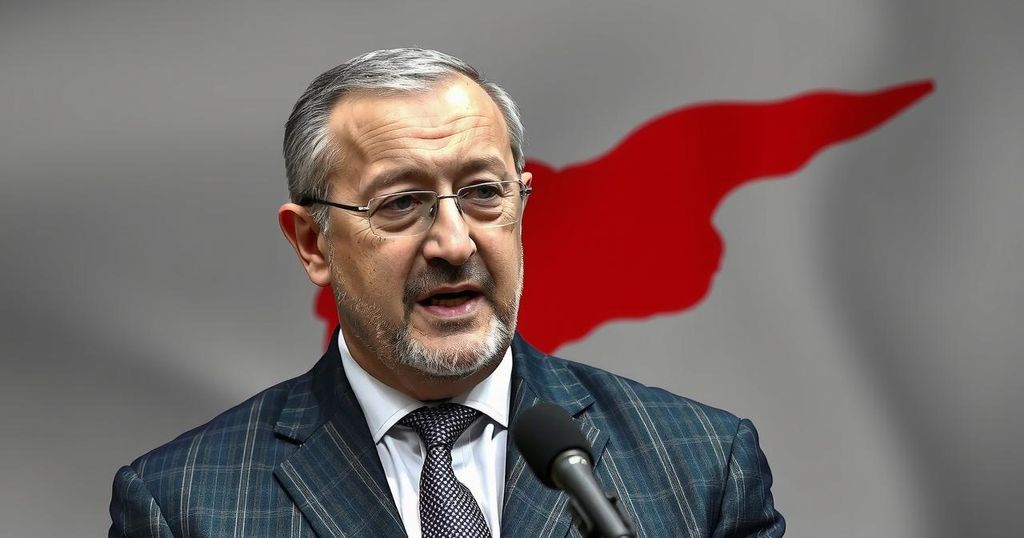The article elucidates Turkey’s strategic resurgence in Syria following Bashar al-Assad’s ousting, emphasizing diplomatic efforts and military involvement in shaping the power vacuum left by the regime’s fall. Erdoğan’s balancing act presents an opportunity to assert influence over Kurdish regions and facilitate Syria’s reconstruction despite internal and external challenges, highlighting Turkey’s significant role moving forward.
In the wake of Syrian President Bashar al-Assad’s abrupt departure to Moscow, Turkey promptly reestablished its diplomatic presence in Syria, marking the first flag raising at its embassy in Damascus in twelve years. This development followed a visit by Turkey’s spy chief, Ibrahim Kalin, who engaged with local leaders, symbolizing Ankara’s strategic positioning following Assad’s collapse. Experts suggest that this moment signifies a significant shift in power dynamics favoring Turkey, as Erdoğan’s policies towards Syria become vindicated, providing Ankara with newfound leverage over the Kurdish regions and influence during Syria’s reconstruction phase.
The Turkish administration’s recent maneuvers reflect detailed planning, as they waited for an opportune moment to engage with the emerging Syrian leadership and culminated in model diplomacy, navigating complexities posed by factions such as Hayat Tahrir al-Sham (HTS). Ahmad al-Sharaa, an HTS leader, facilitated Kalin’s entrance into a transformed political landscape post-Assad. Analysts like Dareen Khalifa characterize this engagement as a “victory lap” for Turkey, suggesting that Erdoğan’s strategies are now bearing fruit amidst the volatile regional backdrop.
Despite the growing relationship between Ankara and HTS, observers caution against interpreting it as a new proxy arrangement, asserting that Turkey’s approach remains calculated and observant of local developments. Turkish officials exhibited patience through a protracted period of caution before the decisive shift towards facilitating HTS’s military objectives became evident, particularly after Assad’s dismissal of Erdoğan’s negotiation overtures.
Erdoğan’s support for the insurgents’ advances highlights a duality; while the Turkish president safeguards his image domestically as a protector of Syrian refugees, he simultaneously navigates pressures from nationalists seeking a reduction in Syrian presence within Turkey. This internal balancing act becomes crucial following Assad’s fall, permitting Erdoğan to harness this change for both domestic and foreign policy advantage.
The foreign minister’s declaration of Syrians returning home underscores the immediate impacts of Assad’s ousting, with thousands reportedly crossing back into Syria within days. Optimism surrounding rebuilding efforts is evident in the response from construction sectors, as companies anticipate opportunities tied to reconstruction endeavors in Syria.
Turkish-backed factions have capitalized on the power vacuum left by the Assad regime, progressively dominating fertile ground against U.S. supported Kurdish entities, although the region remains fraught with complexities. Turkish officials clarify that they advocate for Kurdish representation within the new Syrian regime while opposing any degree of autonomy that could linger in the northeastern territories.
As the new political landscape unfolds, experts contend that Turkey’s negotiation position is significantly strengthened, with HTS relying on Turkish support to navigate international relations. Concurrently, Turkey’s economic input will play a crucial role in reconstruction efforts in a post-Assad Syria, ensuring Turkish influence remains paramount in the evolving dynamics.
This article discusses Turkey’s strategic move to reestablish its influence in Syria following the ousting of President Bashar al-Assad. It highlights the diplomatic efforts led by Turkish officials and the significance of these actions in terms of both regional power dynamics and domestic political implications for President Recep Tayyip Erdoğan. The article contextualizes the broader geopolitical landscape that has enabled Turkey to capitalize on the fall of the Assad regime, particularly regarding Kurdish uprisings and the involvement of Turkish-backed rebel groups.
In conclusion, the events following Assad’s fall manifest a crucial turning point for Turkey, presenting both opportunities and challenges in its foreign policy and national narrative. Erdoğan’s careful maneuvering has positioned Turkey as a key player in the reconstruction and political reshaping of Syria, potentially reaping benefits amid a shifting power balance in the region. However, the volatility of the situation necessitates vigilance to mitigate potential risks from emerging dynamics among local factions.
Original Source: www.theguardian.com






